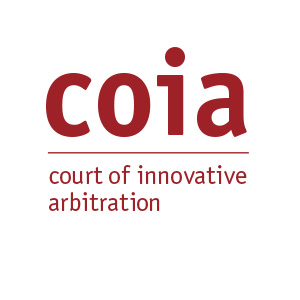Why use COIA?
Two companies from England and Germany negotiate a contract and soon agree on all points but two: the place of jurisdiction and the applicable law. They decide against English law in front of English courts (prejudicial to the German party), against German law before German courts (prejudicial to the English party), and against a third legal system with which neither party is familiar (impractical). A combination of either an English or a German court and a legal system from the other country would be equally unwieldy and impractical. As the two companies weigh their options, they realise that they are actually seeking the same thing: a neutral and EFFICIENT dispute resolution system that produces a FAIR result in line with their contract. Two other companies are parties to a contract which provides for arbitration before one of the established courts of arbitration. As a dispute arises, the parties are concerned that the costs and the time investment necessary in the agreed dispute resolution mechanism are disproportionate to the amount in dispute. Thus, they seek a more EFFICIENT procedure which produces a FAIR result in line with their contract and allows them to save time and money.
Sound familiar?

COIA offers exactly what those companies are looking for. COIA provides an EFFICIENT alternative dispute resolution that can be added to contracts before signing or employed after a dispute has arisen. In both cases, COIA helps save contractual parties time and money. Moreover, if parties make use of COIA’s unparalleled experience in ex aequo et bono arbitration, they can expect a FAIR result and avoid the headaches associated with legal technicalities, foreign laws and selecting a jurisdiction that is free of prejudice to both parties.
The main features of COIA are:

By continuing to use the site, you agree to the use of cookies. more information
The cookie settings on this website are set to "allow cookies" to give you the best browsing experience possible. If you continue to use this website without changing your cookie settings or you click "Accept" below then you are consenting to this.